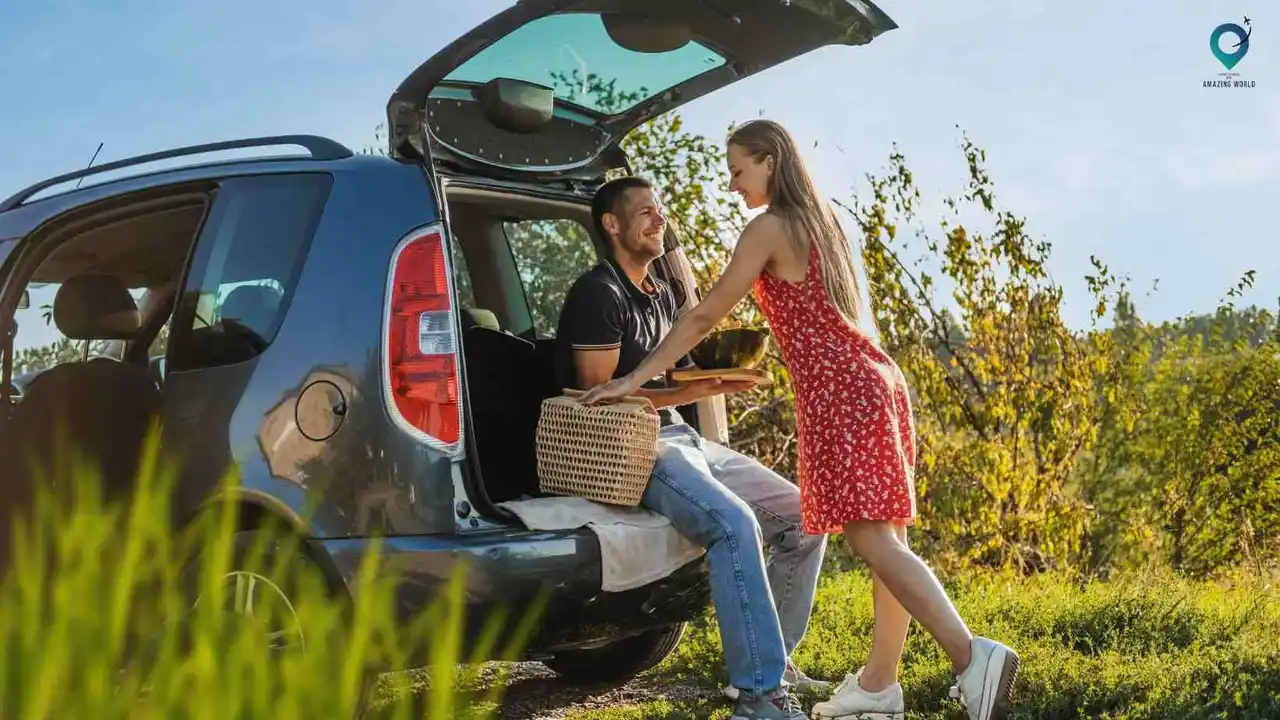Sustainable Travel Hacks Budget Guide
Discover sustainable travel hacks to save money and reduce your environmental impact. Learn tips for transportation, accommodation, and food choices. Travel responsibly on a budget with these eco-friendly hacks.

Introduction to Budget-Friendly Eco Travel Hacks
Alright, wanderlusters! Dreaming of globetrotting without emptying your bank account or harming the planet? You're in the right place. Sustainable travel doesn't have to be expensive; in fact, it can often be cheaper than conventional tourism. We're diving into the best budget-friendly eco travel hacks that will let you explore the world responsibly without breaking the bank.
Transportation Hacks: Eco-Friendly and Wallet-Friendly
Getting around is a major part of any trip, and it can also be a big expense. But fear not! There are plenty of ways to travel sustainably without spending a fortune.
Slow Travel: The Ultimate Budget Eco Hack
Consider slow travel! Instead of hopping on multiple flights, opt for trains, buses, or even cycling. Not only is this more environmentally friendly, but it also gives you a chance to see the world at a slower pace and connect with local cultures. Look into interrail passes in Europe or long-distance bus routes in Southeast Asia.
The Power of Public Transport
Become a public transport pro! Ditch the taxis and embrace buses, trams, and subways. Many cities offer affordable day or week passes. Use apps like Citymapper or Google Maps to navigate like a local. Plus, you'll be reducing your carbon footprint significantly.
Walking and Biking: Free Exploration
Walk or bike whenever possible. It's free, healthy, and allows you to discover hidden gems that you'd miss from a car or bus. Many cities have bike-sharing programs that are much cheaper than renting a car for the entire trip. Think about exploring Amsterdam by bike or wandering through the streets of Kyoto on foot.
Carpooling and Ride-Sharing: Sharing is Caring
Explore carpooling or ride-sharing options. Apps like BlaBlaCar connect drivers with empty seats to passengers heading the same way. This reduces the number of cars on the road and splits the cost of fuel.
Accommodation Hacks: Green Stays on a Shoestring
Accommodation can be one of the biggest expenses when traveling. But there are plenty of eco-friendly and budget-friendly options to choose from.
Hostels: More Than Just a Bed
Hostels are a classic budget travel option, and many are becoming increasingly sustainable. Look for hostels with eco-friendly practices like solar panels, recycling programs, and water conservation measures. Plus, hostels offer a great opportunity to meet other travelers and share tips.
Camping: Back to Nature (and Your Budget)
Camping is a fantastic way to connect with nature and save money on accommodation. Many national parks and campgrounds offer affordable campsites. Invest in a good tent and sleeping bag, and you're good to go. Just remember to practice Leave No Trace principles.
Guesthouses and Homestays: Local Immersion
Consider guesthouses and homestays, especially in Southeast Asia. These often offer a more authentic experience and are cheaper than hotels. Look for places that are locally owned and operated and that support the local community.
Couchsurfing: The Ultimate Budget Hack
Couchsurfing is a platform that connects travelers with locals who are willing to offer a free place to stay. It's a great way to meet people, learn about local culture, and save money on accommodation. Just be sure to read reviews and communicate clearly with your host.
Food Hacks: Delicious and Sustainable on a Dime
Eating well while traveling sustainably on a budget is totally achievable. It's all about making smart choices and embracing local flavors.
Self-Catering: Your Kitchen Away From Home
Cook your own meals whenever possible. This gives you control over the ingredients and reduces your reliance on restaurants. Visit local markets and buy fresh, seasonal produce. Pack reusable containers and utensils to reduce waste.
Street Food: A Culinary Adventure
Embrace street food! It's often the most affordable and authentic way to experience local cuisine. Look for vendors with long lines (a sign of good food) and that use sustainable practices like composting or reducing plastic waste.
Vegetarian and Vegan Options: Good for You, Good for the Planet
Opt for vegetarian or vegan meals. Plant-based diets generally have a lower environmental impact than meat-heavy diets. Plus, vegetarian options are often cheaper than meat dishes, especially in countries where meat is expensive.
Reduce Food Waste: Be a Conscious Consumer
Be mindful of food waste. Order only what you can eat, and take leftovers with you. Avoid restaurants that offer excessive portions or that don't have sustainable practices in place.
Gear and Essentials: Investing in Sustainability
While some initial investments might be needed, choosing the right sustainable gear can save you money and reduce your environmental impact in the long run.
Reusable Water Bottle: Hydration Hero
A reusable water bottle is a must-have for any traveler. It eliminates the need to buy plastic water bottles, saving you money and reducing plastic waste.
Product Recommendations:
* Hydro Flask: Durable, insulated, keeps drinks cold for 24 hours. Price: $30-50. Best for hot climates and long hikes.
* Nalgene: Lightweight, BPA-free, virtually indestructible. Price: $10-20. Ideal for budget travelers and outdoor adventures.
* Collapsible Water Bottle (e.g., Nomader): Space-saving, perfect for packing. Price: $20-30. Great for travelers with limited luggage space.
Comparison: Hydro Flask offers superior insulation, while Nalgene is more affordable and durable. Collapsible bottles prioritize portability. Consider your needs and budget.
Reusable Shopping Bag: Shop Smart
Carry a reusable shopping bag to avoid using plastic bags at markets and stores. Choose a lightweight, foldable bag that's easy to pack.
Product Recommendations:
* Baggu: Stylish, durable, holds up to 50 lbs. Price: $12-15. A fashionable and functional choice.
* ChicoBag: Packs down small, made from recycled materials. Price: $10-12. Perfect for eco-conscious travelers.
* Organic Cotton Tote Bag: Natural, biodegradable, supports sustainable agriculture. Price: $8-10. An ethical and eco-friendly option.
Comparison: Baggu is known for its style, ChicoBag for its packability, and organic cotton totes for their eco-friendliness. Choose based on your style and environmental priorities.
Bamboo Utensils: Ditch the Plastic
Pack a set of bamboo utensils to avoid using disposable plastic cutlery. These are lightweight, durable, and biodegradable.
Product Recommendations:
* To-Go Ware Bamboo Utensil Set: Includes fork, knife, spoon, and chopsticks in a carrying case. Price: $15-20. A complete and convenient set.
* Bambu Veneerware Utensils: Compostable, FDA-approved, and heat-resistant. Price: $10-15. Great for single-use events or picnics.
* Reusable Chopsticks: Traditional and eco-friendly. Price: $5-10. A sustainable alternative to disposable chopsticks.
Comparison: To-Go Ware provides a comprehensive set, Bambu Veneerware is ideal for composting, and reusable chopsticks offer a cultural touch. Consider your travel style and needs.
Solid Toiletries: Less Waste, More Space
Switch to solid toiletries like shampoo bars, conditioner bars, and solid deodorant. These eliminate the need for plastic bottles, save space in your luggage, and are TSA-friendly.
Product Recommendations:
* Lush Shampoo Bars: Variety of scents and formulas, plastic-free packaging. Price: $12-15. Known for their quality and ethical sourcing.
* Ethique Conditioner Bars: Concentrated, long-lasting, and vegan. Price: $15-20. A sustainable and effective conditioner option.
* Meow Meow Tweet Deodorant Cream: Natural ingredients, comes in a recyclable jar. Price: $14-16. A gentle and eco-friendly deodorant choice.
Comparison: Lush offers a wide range of options, Ethique focuses on concentrated formulas, and Meow Meow Tweet prioritizes natural ingredients. Choose based on your hair and skin type.
Planning and Booking: Smart Strategies
The way you plan and book your trip can significantly impact your budget and environmental footprint.
Travel in the Off-Season: Beat the Crowds, Save Money
Travel during the off-season or shoulder season to avoid crowds and take advantage of lower prices on flights and accommodation. Plus, you'll be reducing the strain on local resources.
Look for Eco-Labels and Certifications
When booking accommodation and tours, look for eco-labels and certifications like Green Key, Travelife, or B Corp. These indicate that the business is committed to sustainable practices.
Support Local Businesses
Support local businesses whenever possible. This helps to boost the local economy and reduces the environmental impact of transportation. Choose locally owned restaurants, guesthouses, and tour operators.
Pack Light: Reduce Your Carbon Footprint
Pack light to reduce the weight of your luggage, which in turn reduces the fuel consumption of airplanes and other modes of transportation. Only bring what you need and choose versatile clothing items that can be mixed and matched.
Responsible Consumption: Making a Difference
Your spending habits while traveling can have a big impact on the environment and local communities.
Buy Local and Ethical Souvenirs
Buy souvenirs that are locally made and ethically sourced. Avoid purchasing items that are made from endangered species or that exploit local communities. Look for products that are made from recycled materials or that support sustainable livelihoods.
Say No to Single-Use Plastics
Avoid single-use plastics like water bottles, straws, and plastic bags. Carry your own reusable alternatives and refuse plastic whenever possible.
Respect Local Culture and Customs
Respect local culture and customs. Dress modestly, learn a few basic phrases in the local language, and be mindful of local traditions. This will help you to connect with local people and have a more meaningful travel experience.
Leave No Trace
Practice Leave No Trace principles whenever you're in nature. Pack out everything you pack in, stay on designated trails, and avoid disturbing wildlife.
:max_bytes(150000):strip_icc()/277019-baked-pork-chops-with-cream-of-mushroom-soup-DDMFS-beauty-4x3-BG-7505-5762b731cf30447d9cbbbbbf387beafa.jpg)






